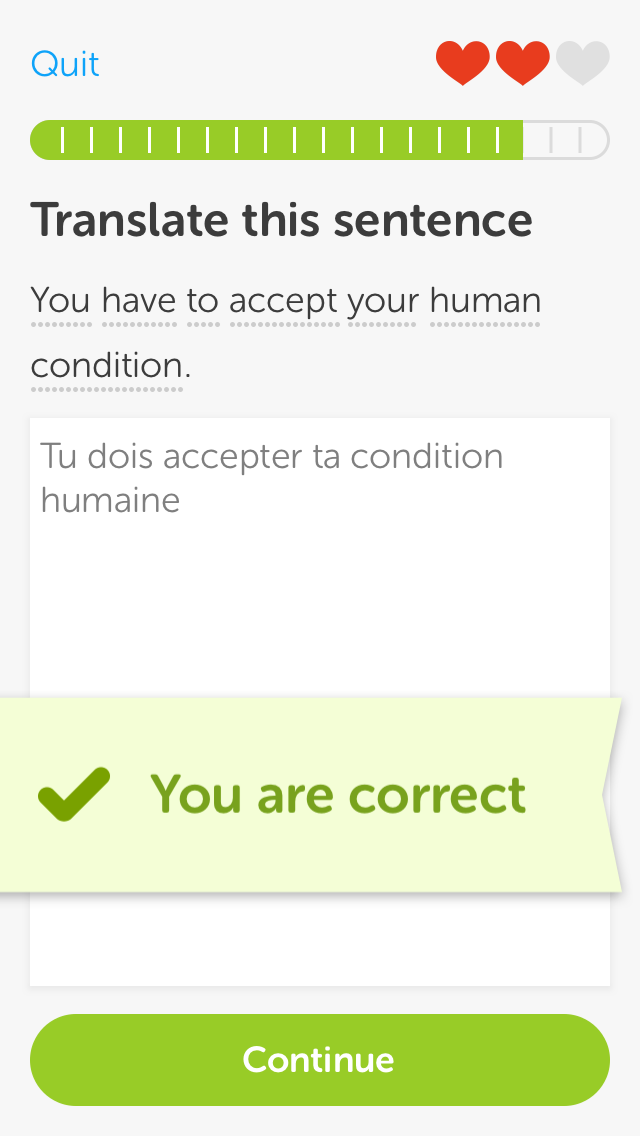Us humans, we’re an unreliable lot. Making big promises, telling our lovers and our languages that we will be forever faithful to them. And then, we find an exciting new script and go skipping away, never reaching the blissful heights of B2 level! Have you ever abandoned a language? In today’s post, I want to give you a quick life and language update and share my abandonment of Russian along with some ideas of how we can deal with Language Guilt.
Quitting without guilt
I’m finding this one very difficult indeed. I started learning Russian over a year ago and have not made a lot of progress. I don’t really mind this all that much - obviously I’ve been a productive person in many other ways. But I genuinely feel quite guilty and embarrassed at the thought of “giving up on Russian”. I feel like I’m sharing this in a space where people are keen to acquire lots of languages. I’m a teacher of languages. My whole thing is designed to keep you going! What a poor showing when your own language coach announces that she’s going to stop learning Russian for a while.
I had the time and I used it
But there may be a different way of looking at this. First of all, let’s examine the classic excuse of “I’ve just got no time in my life for this.” I have thought this a few times, just like everyone has. But realistically, I know that I have spent time language learning. I spent a lot of time and brain energy on bringing my French back up to scratch since last year. Russian seemed like the one I was scared to go back to because it was a real challenge, and right now I just wasn’t ready. But really, I had time. I could have made time. I wasn’t idle, I was just not that into Russian.
Some other things I did?
- Created the Savvy Brand Toolkit, the Language Book Club, and the Live Lesson Strategies Course
- Took two online courses at FutureLearn: “Understanding Language Learning and Teaching” and “Inequalities in Personal Finance”.
- Taught a lot of German to a lot of you lovely people - in fact, I'm building a special online course for you which should be ready next month (sign up to the newsletter for updates)
So I think I can get away with considering myself a person who has not been lazy.
I needed to unblock my Productivity
Do you relate to the following situation? My own productivity is never higher than when I manage to let go of a “should-y” feeling. There is no need to be my own worst critic and spend all my days avoiding something I don’t like, and at the same time feeling guilty about it. So instead, I want to take this opportunity to openly declare that I feel embarrassed that I didn’t learn more Russian.
There. So what? So nothing! I have learnt a lot in the time I did spend with this wonderful language: new words, verb endings, Cyrillic script and what grechka is. Maybe if I feel like I "should be at level A2 by now", the guilt actually becomes a hindrance to learning more Russian?
If we lose our sense of fun and play in language learning, what is left but graft and guilt and bad feelings?
Now it is the time to follow my own enthusiasm and start discovering the basics of a few more languages with a clear and open mind. Isn’t that better? I am taking a moment to appreciate the things that I did learn and I am ready to move on and let the enthusiasm boost me along.
I am Declaring my Intentions
Here I am with my clear and open mind. I have learnt some basics of Russian. I will be back one day and LOVING IT. And in the meantime?
Here’s what’s on my plate for the coming few months:
As you are reading this at the beginning of June, I have just celebrated my wedding and hidden out in Wales for a few days. Now I hope to be able to carve out a little more time to delve into a language that has fascinated me forever: Welsh. I live near the Welsh border and a week in the country is one of the most affordable travel options I probably have. The Welsh language also attracts me because of its historic connections and the wonderful way that it evokes its landscape in its pronunciation. I have not yet got a plan of how I will go about learning this one, and am most likely to treat it as my “passion project”, dipping in and out of learning more.
The second language is one that I’m truly looking forward to, and again one I’m expecting to pursue at a beginner level. I’ll give you a few hints here to see if you can guess which one it is:
- It’s related to English and German in a way that makes it easy to read
- I’ve just started a new Pinterest board for it
- This guy:
Any ideas?
Has Language Guilt ever ruined your day?
I would love to hear from you guys on this topic. Let's drag that language guilt out of the closet, kicking and screaming, and look at it in daylight. Is it okay to move on from a language when you feel ready to do so? Or should we all stop being so precious and commit to working harder?
I would love to hear your thoughts in the comments - please let me know where you're at.







